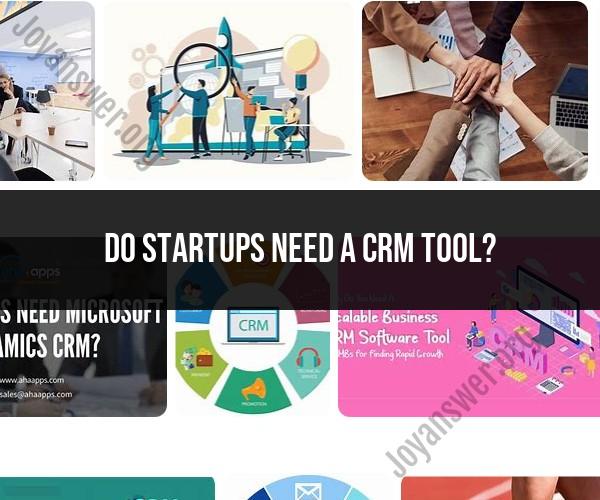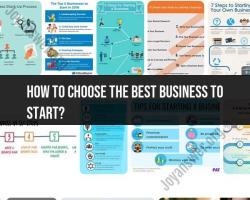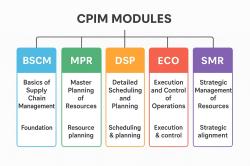Do startups need a CRM tool?
Yes, CRM (Customer Relationship Management) tools can be highly beneficial for startups. These tools help startups manage and nurture their customer relationships, which is crucial for growth and long-term success. Here are some reasons why startups should consider using CRM tools:
Centralized Customer Data: CRM tools allow startups to store and manage all customer information in one central database. This includes contact details, interactions, purchase history, and more. Having a unified view of customer data helps in understanding customer preferences and behavior.
Improved Customer Communication: CRM tools provide features for email marketing, automated responses, and personalized communication. Startups can use these capabilities to send targeted messages, follow up with leads, and provide excellent customer service.
Lead Management: Startups often need to nurture leads and convert them into paying customers. CRM tools offer lead tracking and scoring features, helping startups prioritize and engage with the most promising leads effectively.
Sales Pipeline Management: A CRM system enables startups to track their sales pipeline and monitor the progress of deals. This helps in forecasting revenue, setting sales targets, and identifying bottlenecks in the sales process.
Customer Support and Issue Tracking: CRM tools often include customer support and issue tracking capabilities. This is essential for startups to address customer inquiries, resolve problems, and maintain a positive reputation.
Analytics and Insights: CRM software provides analytics and reporting tools that can help startups gain insights into their customer base and business performance. These insights can guide strategic decisions and marketing efforts.
Scalability: As startups grow, managing customer relationships becomes more complex. CRM tools are scalable, allowing startups to expand their operations without losing track of customer interactions.
Time and Resource Efficiency: CRM tools automate various tasks, such as data entry, email responses, and lead follow-ups. This frees up valuable time and resources that startups can allocate to other critical areas of their business.
Integration with Other Tools: Many CRM systems can integrate with other business tools, such as email marketing software, e-commerce platforms, and social media management tools, creating a more comprehensive and efficient workflow.
Customer Retention: Building strong customer relationships through CRM tools can enhance customer loyalty and increase customer retention rates. Repeat customers often generate a significant portion of a startup's revenue.
Competitive Advantage: Startups that effectively use CRM tools can gain a competitive advantage by delivering better customer experiences, responding to customer needs quickly, and staying organized in their customer interactions.
Data Security and Compliance: CRM tools often include security features to protect customer data and help startups comply with data privacy regulations like GDPR or HIPAA, depending on their industry.
In summary, CRM tools can provide startups with a strategic advantage by helping them manage customer relationships, streamline operations, and make data-driven decisions. While the specific CRM needs may vary depending on the startup's industry and customer base, adopting a CRM system can contribute significantly to the growth and success of the business.
Yes, CRM (Customer Relationship Management) tools can be highly beneficial for startups. These tools help startups manage and nurture their customer relationships, which is crucial for growth and long-term success. Here are some reasons why startups should consider using CRM tools:
Centralized Customer Data: CRM tools allow startups to store and manage all customer information in one central database. This includes contact details, interactions, purchase history, and more. Having a unified view of customer data helps in understanding customer preferences and behavior.
Improved Customer Communication: CRM tools provide features for email marketing, automated responses, and personalized communication. Startups can use these capabilities to send targeted messages, follow up with leads, and provide excellent customer service.
Lead Management: Startups often need to nurture leads and convert them into paying customers. CRM tools offer lead tracking and scoring features, helping startups prioritize and engage with the most promising leads effectively.
Sales Pipeline Management: A CRM system enables startups to track their sales pipeline and monitor the progress of deals. This helps in forecasting revenue, setting sales targets, and identifying bottlenecks in the sales process.
Customer Support and Issue Tracking: CRM tools often include customer support and issue tracking capabilities. This is essential for startups to address customer inquiries, resolve problems, and maintain a positive reputation.
Analytics and Insights: CRM software provides analytics and reporting tools that can help startups gain insights into their customer base and business performance. These insights can guide strategic decisions and marketing efforts.
Scalability: As startups grow, managing customer relationships becomes more complex. CRM tools are scalable, allowing startups to expand their operations without losing track of customer interactions.
Time and Resource Efficiency: CRM tools automate various tasks, such as data entry, email responses, and lead follow-ups. This frees up valuable time and resources that startups can allocate to other critical areas of their business.
Integration with Other Tools: Many CRM systems can integrate with other business tools, such as email marketing software, e-commerce platforms, and social media management tools, creating a more comprehensive and efficient workflow.
Customer Retention: Building strong customer relationships through CRM tools can enhance customer loyalty and increase customer retention rates. Repeat customers often generate a significant portion of a startup's revenue.
Competitive Advantage: Startups that effectively use CRM tools can gain a competitive advantage by delivering better customer experiences, responding to customer needs quickly, and staying organized in their customer interactions.
Data Security and Compliance: CRM tools often include security features to protect customer data and help startups comply with data privacy regulations like GDPR or HIPAA, depending on their industry.
In summary, CRM tools can provide startups with a strategic advantage by helping them manage customer relationships, streamline operations, and make data-driven decisions. While the specific CRM needs may vary depending on the startup's industry and customer base, adopting a CRM system can contribute significantly to the growth and success of the business.











